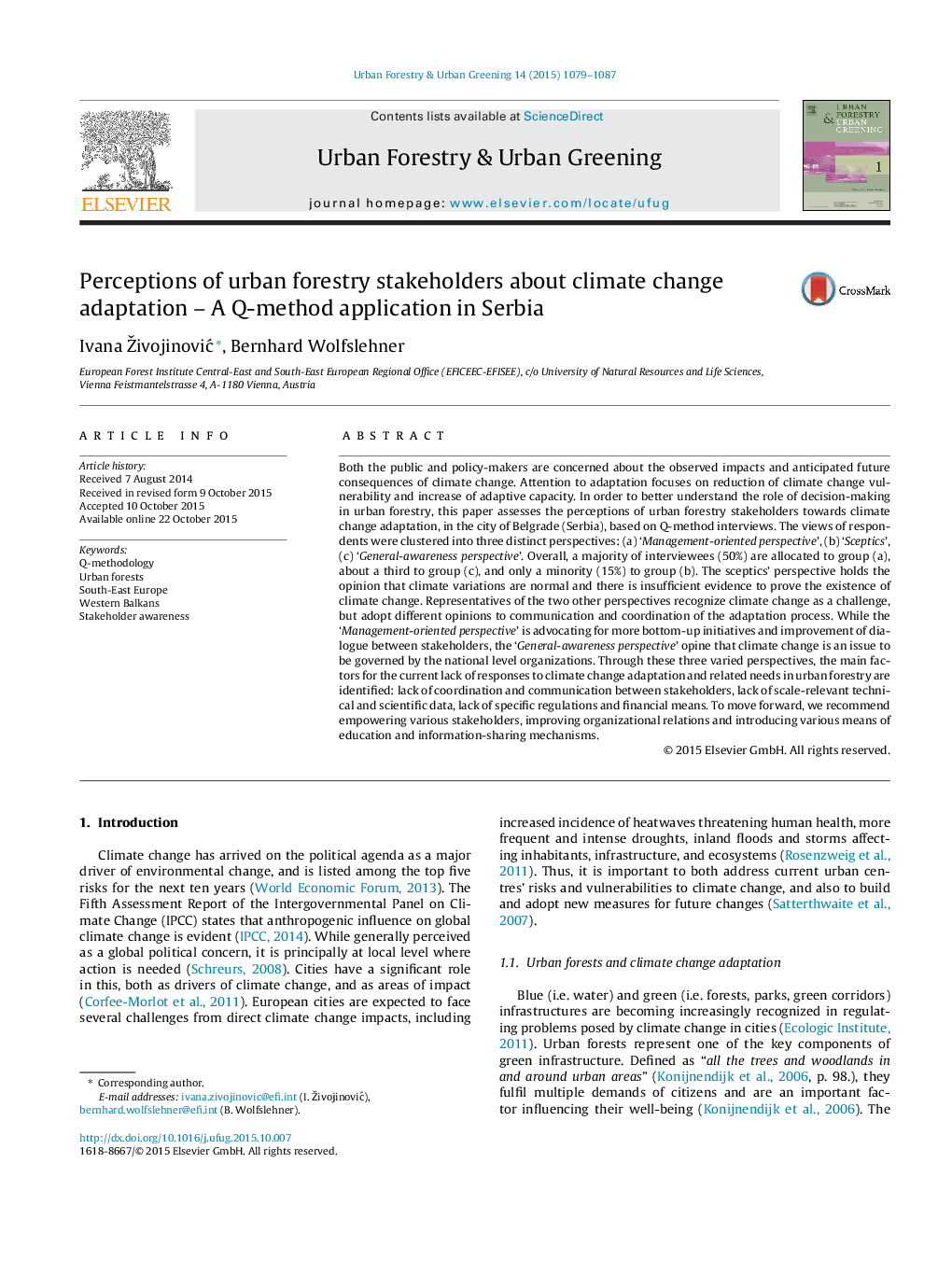| کد مقاله | کد نشریه | سال انتشار | مقاله انگلیسی | نسخه تمام متن |
|---|---|---|---|---|
| 10252115 | 160243 | 2015 | 9 صفحه PDF | دانلود رایگان |
عنوان انگلیسی مقاله ISI
Perceptions of urban forestry stakeholders about climate change adaptation - A Q-method application in Serbia
دانلود مقاله + سفارش ترجمه
دانلود مقاله ISI انگلیسی
رایگان برای ایرانیان
کلمات کلیدی
موضوعات مرتبط
علوم زیستی و بیوفناوری
علوم کشاورزی و بیولوژیک
جنگلداری
پیش نمایش صفحه اول مقاله

چکیده انگلیسی
Both the public and policy-makers are concerned about the observed impacts and anticipated future consequences of climate change. Attention to adaptation focuses on reduction of climate change vulnerability and increase of adaptive capacity. In order to better understand the role of decision-making in urban forestry, this paper assesses the perceptions of urban forestry stakeholders towards climate change adaptation, in the city of Belgrade (Serbia), based on Q-method interviews. The views of respondents were clustered into three distinct perspectives: (a) 'Management-oriented perspective', (b) 'Sceptics', (c) 'General-awareness perspective'. Overall, a majority of interviewees (50%) are allocated to group (a), about a third to group (c), and only a minority (15%) to group (b). The sceptics' perspective holds the opinion that climate variations are normal and there is insufficient evidence to prove the existence of climate change. Representatives of the two other perspectives recognize climate change as a challenge, but adopt different opinions to communication and coordination of the adaptation process. While the 'Management-oriented perspective' is advocating for more bottom-up initiatives and improvement of dialogue between stakeholders, the 'General-awareness perspective' opine that climate change is an issue to be governed by the national level organizations. Through these three varied perspectives, the main factors for the current lack of responses to climate change adaptation and related needs in urban forestry are identified: lack of coordination and communication between stakeholders, lack of scale-relevant technical and scientific data, lack of specific regulations and financial means. To move forward, we recommend empowering various stakeholders, improving organizational relations and introducing various means of education and information-sharing mechanisms.
ناشر
Database: Elsevier - ScienceDirect (ساینس دایرکت)
Journal: Urban Forestry & Urban Greening - Volume 14, Issue 4, 2015, Pages 1079-1087
Journal: Urban Forestry & Urban Greening - Volume 14, Issue 4, 2015, Pages 1079-1087
نویسندگان
Ivana ŽivojinoviÄ, Bernhard Wolfslehner,